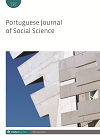
Full text loading...

In Portugal, as in other European countries, government policies have driven the modernization of doctoral education, in which collaboration with companies is one of its axes; however, this has been insufficiently studied at the national level. This study focuses on the role of public polices in promoting university–business collaboration by tracking higher education and science policies. The main public policy instruments are analysed, identifying objectives and narratives. The methodological strategy comprises documental analysis. The findings show public policies have played a role in facilitating collaboration of this nature throughout successive governments. These policy measures are justified by the urgency of endowing companies with more qualified staff, aimed at boosting the country’s economic development; from a more individual perspective, the need to ensure the employability of doctorate holders; or from a more institutional angle, the alignment of doctoral programmes with the business sector and an interconnection of cultures.

Article metrics loading...

Full text loading...
References


Data & Media loading...

Publication Date:
https://doi.org/10.1386/pjss_00034_1 Published content will be available immediately after check-out or when it is released in case of a pre-order. Please make sure to be logged in to see all available purchase options.